Photo

Dealing with Emotions
by Choje Lama Yeshe Losal Rinpoche
When you have identified your major problem, whatever the poison, whatever the problem is that is bothering you terribly, you should then sit there, relax, and call up this emotion in your meditation. Whether it is anger, jealousy, pride, envy, whatever, summon it here. Then introduce yourself to this being which has somehow caused so much chaos in your life for so long, and investigate this feeling of yours. How big is it? Is it oblong? Round? Black? White? What colour, what shape is it?
Look at the essence of this emotion that makes you suffer so much. You always think that the emotion is genuinely happening, but if that were the case, it should have a shape, a colour, a size. If you are bothered by something, there must be something there for you to be bothered by! How can anything bother you when you find nothing? If it were a solid entity, really existing in some part of your body, you could just remove it with an operation and thus solve all your problems. However, emotions have no such characteristics.
This is the time to do a really proper investigation through meditation. Hopefully you will come to the very strong conclusion that there isn’t anything to worry about, because there is nothing to be found. You then discover that you are responsible for creating emotions that do not really exist, and that you yourself transform them into solid realities.
That’s why our emotional states are so difficult to handle. Somehow we are able to build this solid image out of an emotion, and it bothers us all the time. It takes away our peace and destroys whatever we’re doing. If I were to tell you there is nothing to bother you, you would certainly reply, Oh, this Lama Yeshe is saying so, but my feelings really bother me. This is why I’m asking you to do this investigation here, now, in your own meditation. There is no other way. When you yourself come to the conclusion that there is actually nothing there to bother you, then you should be relieved. It should comfort you to know that somehow you have been enslaved by feelings that do not really exist.
Doing this again and again is like dismantling the imagery you have built up all your life. Through meditation, you can dismantle this feeling that there is something bothering you all the time. But unless you do proper research, you won’t be able to achieve it. You have to wholeheartedly involve and engage yourself in this investigation, so that you really find out for yourself. Whichever way you look, no matter how much time you invest, you find nothing at all, but if you still let your life be poisoned by this, you’re really wrong, aren’t you? If you can find nothing, then why should you be afraid?
For example, if you’re very afraid, look at the essence of what you are afraid of. Does this fear manifest like a monster? Does it have many horns, or teeth? What is it you are really afraid of? And if you can’t find anything, then think whether in childhood maybe someone frightened you. Maybe you built your own image on this and weren’t able to get rid of it afterwards, although there isn’t really anything to bother you now.
This type of meditation is called lhakthong in Tibetan, which means thorough investigation leading to insight. Learning to deal with our emotions, we gradually get used to the idea of the possibility of inner transformation. In the Tibetan tradition, we say that our mind is like a wild being. We have to tame this wild being. Usually, people think that everybody else is the problem and that they themselves are the perfect ones - that way they end up never finding any peace in their minds. The right approach is to tame our own wild being and then everything else falls nicely into place. This can only be achieved through meditation.
However, things are not going to change overnight. For some, it may take ten, twenty years or more. As Buddhists, we believe that this accumulation of habits may have taken many lifetimes. Those who do not believe in previous lives can still accept the fact that it has taken them twenty, thirty or forty years to assimilate their family lineage, culture, and tradition. We have so many habits, we cannot suddenly drop them altogether. That is why we should never get impatient. We should simply acknowledge that the task is difficult, but we should never give up.
#bodhi#bodhicitta#bodhisattva#buddha#buddhism#buddhist#compassion#dhamma#dharma#enlightenment#guru#khenpo#lama#mahasiddha#mahayana#mindfulness#monastery#monastics#monks#path#quotes#rinpoche#sayings#spiritual#teachings#tibet#tibetan#tulku#vajrayana#venerable
284 notes
·
View notes
Photo

Though, for a century a man should tend the (sacred) fire in the forest, yet, if, only for a moment, he should honour (a Saint) who has perfected himself - that honour is, indeed, better than a century of fire-sacrifice. -- The Buddha
#bodhi#bodhicitta#bodhisattva#buddha#buddhism#buddhist#compassion#dhamma#dharma#enlightenment#guru#khenpo#lama#mahasiddha#mahayana#mindfulness#monastery#monastics#monks#path#quotes#rinpoche#sayings#spiritual#teachings#tibet#tibetan#tulku#vajrayana#venerable
19 notes
·
View notes
Text
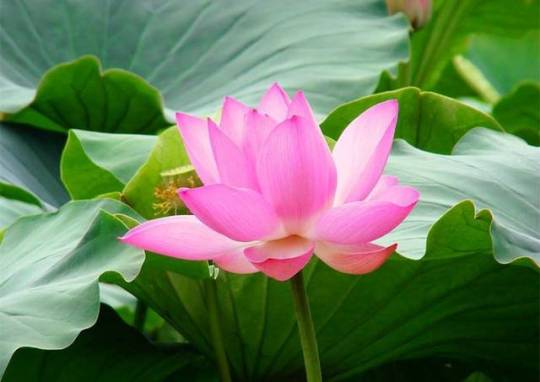
不是理所当然
文|心憩
现代人最大的弊病就是把一切视为理所当然,什么都是理应如此,什么都觉得是别人欠他的,什么都觉得是自己的权益。在这样的心态下,不快乐的人,满腹怨怼的人,就与日俱增。
在小小的校园里,这样的心态也处处可见。有的学生要求老师通融他延期交作业,老师不允许,学生就投诉老师缺乏同理心。孩子在测验日生病缺席,按校规要交上病假单才能够补测验,否则零分计算。但是学生清楚告知父母这个条规,父母还是坚持家里已经有成药,不要浪费钱看医生,反倒要老师通融。学校的日历明明标明什么时候放假,家长执意要在学期内带学生出国旅行。如果人人把自己的意愿排在第一,校规的存在还有意义吗?但是家长与学生却都认为校方理应做出配合,实在让人无奈。
从去年开始当义工, 负责的项目是“50=100”超市,让一百多户低收入家庭每个月能用五十元购买价值一百元的日常用品,减轻他们的负担。这是善心人士捐助以及超级市场配合才能推行的项目。每一次都会有一大批义工前来当售货员、收银员、保安和行政工作。有些受惠家庭,非常知足,只够买必需品,还一直向义工表示谢意。可是更多的人,却在因为被分配到比较后入场,没有买到自己喜欢的物品而大发雷霆。他们一直抱怨,有的甚至把入场卡甩给工作人员说:我要买的水果没有货了,没有必要进去了,浪费我的时间!有的人怨没有麻油,有的人说他们中意的洗衣粉品牌没有了;大家把气发泄在义工身上。殊不知,义工和善心人士都是义务帮忙,本着扶助弱势群体的心才拨出周末的时间来服务。获益者却执着于计较入场的顺序,还有货品的多寡。有些更过分的家户,还每个月购买大量的厕纸纸巾,疑似要转卖赚钱,把善心人士的捐赠转为牟利的管道,这实在让人叹息。
别人的爱心与帮助,从来不是理所当然的。”我贫穷,所以你们理应帮助我“,这样的想法是很不合理的。
最近当义工的妹妹就在了解一对姐妹花的家庭状况以便更好地帮助她们。这对姐妹因为父母皆生病而辞去工作,照顾父母。一家人靠救济金以及慈善机构的送食服务生活。父亲去年去世,母亲今年也去世;两姐妹的负担无疑减轻了些。但是她们却向社区求助,说六千元的殓葬费能不能资助?还说社区有没有给白金?更期望有更多金钱上的资助。但是就没有说能不能帮助她们找工作,让她们自给自助。还有些弱势家庭在有关慈善机构赠送电脑和无线上网,让他们的孩子能够在学习上得到辅助;他们却嫌弃网速太慢,电脑太旧,忘了这些捐助是来自一个包容性社会的爱心。
视一切为理所当然,是我们这个安逸小国的许多国民共有的特性。于是乎,大家忘了自己享有的有多少,反而一直把自己缺失的部分放大。尽管生活过得去,怨言却比很多生活在水深火热的人们多;这的确让人很不解。
富足,不是家财万贯!快乐不是用财富交换!重点在于一颗感恩的心!
#buddha#buddhism#buddhist#bodhi#bodhicitta#bodhisattva#compassion#dharma#dhamma#enlightenment#mahayana#mindfulness#monastics#monastery#monks#path#quotes#sayings#spiritual#teachings#venerable#wisdom
19 notes
·
View notes
Photo

We receive what we put into the Dharma. Our joyous effort brings good results over time. We are responsible for our spiritual practice, although we certainly depend on spiritual teachers to instruct us and a community of Dharma friends for support. However, no one is going to spoon-feed us. Our teachers and the Three Jewels are there to guide, teach, and inspire us, but we have to do the work of transforming our minds. As we do, we will become wiser, calmer, and more compassionate. Our mental and emotional clarity will increase, as will our sense of well-being. -- Venerable Thubten Chodron
#bodhi#bodhicitta#bodhisattva#buddha#buddhism#buddhist#compassion#dhamma#dharma#enlightenment#guru#khenpo#lama#mahasiddha#mahayana#mindfulness#monastery#monastics#monks#path#quotes#rinpoche#sayings#spiritual#teachings#tibet#tibetan#tulku#vajrayana#venerable
18 notes
·
View notes
Photo

Empowerment In Vajrayana
by Drukpa Choegon Rinpoche, Thutop Choekyi Wangchuk
THE IMPORTANCE AND SIGNIFICANCE OF EMPOWERMENT
Empowerment or Initiation is a ritual or practice unique to the Vajrayana tradition of Buddhism. If you are or wish to be a practitioner of Vajrayana, it's important for you to first receive empowerment, because empowerment is like a door. If you want to enter to a house, you have to open the door and then you can enter. Empowerment is completely like a door to Vajrayana.
The practice of Vajrayana has two stages - Developing Stage and Completion Stage. Developing stage is all about visualisation of the deity or yidam. One must first obtained the relevant empowerment even before one start opening the sadhana of the deity; and request for the relevant explanation and instruction from the master.
A tantric practice is not considered effective or valid until a qualified master has transmitted the corresponding power of the practice directly to the student. This transmission is done through an 'empowerment', called 'Wang' in Tibetan or 'Abhisheka' in Sanskrit. Thus, if you are a serious practitioner of Vajrayana, empowerment is mandatory before you start any practices.
EMPOWERMENT - THE HIGHEST OF VAJRAYANA
In Vajrayana, empowerment is considered as the highest blessings a Lama could offer, where he supplicate with fervent yearning devotion to all the Enlightened Lineage Masters, from his root guru, all the way up to the primordial Buddha, Vajradhara. In this way, the blessings of all the Lineage Masters, whose mind is of no different than the Dharmakaya mind of all Buddhas, come together united into the lama, and we receive the blessing of the lama, so therefore we also obtain the blessings of all the Buddhas.
The secret Mantrayana, particularly the Kagyu Lineage are called the 'swift path' because of the directness and sharpness of its oral or pointing out instructions, and the powerful blessings from the continuous stream of the successive enlightened Lineage Masters, for which, if practice accordingly with unshakeable faith and devotion, one is able to attain enlightenment in this very lifetime, in this very body of oneself. That's why, it is extremely important to follow a master who has and upholds a pure unbroken lineage in the propagation and practice of the Dharma. Having connected with such lama, one obtains all the blessings of the Buddhas through him.
EMPOWER AND THE MASTER
Not everyone can give empowerment. Empowerment can only be provided by someone from a valid lineage who has the experience and, who have practised and completed the retreat of the related deity.
Initiation or Empowerment, on a higher level, is the transmission of esoteric wisdom and realisation from a qualified Vajra Master to the mind of the disciple. To the beginners, it is no more than a ceremony of receiving blessings; to the adept practitioners, empowerment is the plantation and maturing of the seed of enlightenment. Since what is being transmitted is not mundane knowledge of any sort, but the enlightened essence and wisdom that go beyond the worldly perception, therefore, the Vajra Master has to be a competent guru who himself has first-hand experience in the ocean of wisdom of the reality, detailed in the Buddhist scriptures, particularly in the Tantric practices. Thus, not any ordinary scholar can fulfil the task in a qualified way, no matter how well-versed he is with words or how expert he is in the Buddha scriptures.
There are certain qualifications the master must hold for him to bestow empowerment. He or she must first possess the power and necessary quality in order to empower the students. You have to hold something in you before you can give it or transmit it to other. It's simple logic. That's why not everybody is capable in granting empowerment. But, that doesn't mean that I am dejecting you to go to other masters. You can always go to listen Dharma, learning teachings or pay respect if you think that the teacher is a genuine master ... but you have to consider empowerment as the very last resort, after you are hundred percent sure that the master is qualified.
Why you have to do that? Because every empowerment engaged certain samayas. Samaya here means you have received an empowerment from a master; he may not be your root guru, but he is considered as one of your important gurus, who have given you the empowerment, the authorisation to learn on the particularly deity or Buddha. So he is an important guru. Once you have received the empowerment, if you do not keep the samaya with the master, it's obstacle. That's why one must not receive empowerment from just anybody or everybody; nor merely regard it like blessings and hopping everywhere to obtain empowerment. Not with that sort of notion for genuine Vajrayana practitioners.
IS EMPOWERMENT MANDATORY TO ALL?
If you are simply following the Theravada path, which is also Buddhism, or the Mahayana way of practising loving-kindness and compassion, then you do not need empowerment. For Theravada practices of simple meditation such as Samatha and lots of other practices of their vehicle, you do not need empowerment. If you want to practice Bodhicitta according to the Shantideva's book, etc., you do not need empowerment too. If you wanted to do Ngondro practice of Dorje Sempa, you can do it with or without empowerment. Once you have completed all these practices, and you wish to become a serious Vajrayana practitioner, then you can have one or two empowerment which enable you to do your own Yidam or deity practices, then it's good enough.
THE MORE EMPOWERMENT, THE MORE BLESSINGS?
If you received lots of empowerment from one or two masters whom you think you can keep the perfect samayas, the more you receive the empowerment, the better it is, because it's often blessings. The more blessings you get, the more of your karma is being purified. Receiving empowerment from your own root guru or guru that your devotion and faith are unshakeable, indestructible, the more the empowerment one received, the better it's. However, not simply getting it from everybody or anybody, as I said it's hard to keep the samayas.
RECEIVING LOTS OF EMPOWERMENT WITHOUT KEEPING THE SAMAYAS
Those who have received innumerable empowerment already, I don't want to disappoint them. So what is the solution for them? They must keep a good relationship, proper samayas with the masters. Because it's already been received. Samaya is important. Every empowerment definitely involved certain samayas. There is no Vajrayana empowerment without samaya. Every empowerment comes with samayas.
Vajrayana samaya is the same as the Vows. In Theravada, when you become a monk, you take a vow. In Mahayana, you take the Bodhicitta vows, then you become a Mahayanist practitioner. In the Vajrayana, when you take an empowerment, the Vajrayana vows come along with the empowerment, and you become a Vajrayana practitioner.
Each time you received an empowerment, there is a vow. The Vow is always linked with the deity, particularly with the master who bestowed the empowerment. So, there is a special vow involvement between the master and student. Those who have received the empowerment, must consider the master as one of their teachers. Respect, not criticising, whatever samayas that's involved; one must learn and kept it properly.
In case some samaya is not properly kept, the best way is, to recite Dorje Sempa mantra. Vajrayana samayas are slightly different from Theravada and Mahayana vows. It's easier to break; it's very sensitive, but it's also relatively easier to fulfil. Therefore, recitation of Dorje Sempa mantra, doing Tsok, Ganachakra, Fire puja etc., are all the methods of fulfilling broken samayas. On top of that, one should not to keep the transgressed samayas for too long. As soon as one realised that one has violated any samayas, one must confess immediately, and within the shortest possible period one must clear or fulfil those broken samayas, particularly, by recitation of Dorje Sempa mantra. When feasible, if that ever happened, one must confess to the master directly.
The root of Vajrayana practice is the samaya. Samaya is a two way commitment to uphold the teachings. There are lots of samayas that must be kept by the master too. There are master's samayas, student's samayas etc. And, as it is taught in the Tantras, siddhis or accomplishment of one's practices can only be obtained by those who observed the perfect samaya.
THE IMPORTANCE OF EXAMINING THE MASTER
Those who have yet to receive any empowerment, must never go not knowing master. One must take the extra miles to learn about his lineage, his root guru, his qualification, etc. These are far more important than whether he is from a different school or tradition. That's not so relevant in Tibetan Buddhism. You can go to any lineage master, as long as the master has a lineage, had practised and is qualified. What lineage or sect he is from, is secondary compared to the master's own qualifications. Sectarianism is not part of Vajrayana tradition, and has never been accepted in Vajrayana.
The worrying thing is, today's Vajrayana followers, simply go after any masters, if the teachers are from their own lineage, without first checking, whether he or she is qualified or not. That, I think is a problem. Because if the teacher is not qualified, he may not be able to keep the samaya, or maybe he has no capability to transfer the empowerment, or he may not uphold the lineage properly. If that is the case, not only it's inappropriate or incomplete, rather it's become the obstacle. Obstacle to the master, obstacle to the students. Even when that sort of masters have given empowerment, if the students practised, the students will be short life, sick, unwell and never obtain the siddhis that supposed to be obtained in this lifetime. And in lives to come, according to Tantrayana, both master and students will be going into the not right rebirth, so to speak. That's why, in Vajrayana, it emphasised again and again, the master must be qualified.
Take me, for example; I have learned under many different masters, Nyingma, Kagyu, Sakya, etc. It doesn't bother me what lineage they are from? What I am concerned is whether he is qualified? Is he great? Does he have a valid lineage? His realisation? That's important. That's what one must check!
RECEIVING THE SAME EMPOWERMENT REPEATEDLY
A lot of time people think when they have attended certain type of empowerment, they have received that empowerment. So, when it's being given the second time, they regard it as not important as they believed they have already obtained that. This is very wrong from the Vajrarana perspective.
You do not receive all kinds of empowerment from all sort of masters; that's right. When your root guru or the master whom you are fully devoted, are given the same empowerment again and again, different time or even on the same day, you have to receive. Because, today you receive the empowerment, simply means you receive the blessing from him; that's what we called, officially receive, but not ultimately.
For example, Dilgo Khyentse Rinpoche had given me 10 times of the Manjushri empowerment, when he is going to bestow the same empowerment for the 11th time, I would never say that I had already received the empowerment. It is totally foolish for one to think that way. For the 11th time empowerment, I will receive with equal respect and devotion, and by doing so, I shall receive the corresponding blessing or even more blessings.
An empowerment is truly received, only when you have awakened through that empowerment. The moment of awakening, is the moment you genuinely received an empowerment, where the real transmission and inner transformation have taken place. When you ultimately receive, that means you are awakened. The blessings of Vajrayogini or Dorje Sempa is transmitted; the moment of transmission is the moment ripening, and you awaken.
If you haven't enlightened, means you still haven't received the empowerment. So, when we received an empowerment of a deity, it has not ripened. Ripen means enlightened. Until that happened, every empowerment is merely blessing, blessing and blessing. You received it for one time; it is not fully received. Its essence, strictly speaking, has not been transmitted. The real transmission will awaken you; that's the ultimate received of an empowerment.
Empowerment is a profound way of ripening one's mind stream to that of the Buddha. Empowerment plants the seed to realise one's Buddha-nature, the primordial co-emergent wisdom within all sentient beings. Through the plantation of seed, every time you receive the empowerment from that master, it is again and again blessing. That's why in the Vajrayana tradition, there are certain empowerment you receive for 100 times, repeatedly, the same day for 100 times. If in one time one can obtain it, why we have to do 100 times, that's a simple reasoning.
Therefore, it's terribly important for one to understand, receiving the same empowerment, from one's root guru, repeatedly, is very blessful and vital for one's spiritual attainments. So, when your master is given the same empowerment, one must always, with equal respect and receive it. Then, you will be able to receive his blessings, over and over. The more you receive; one day, it will ripen, and one's get enlightened. Each time you receive, it's always blessings, to purify one's karma and obscuration; helping one to progress towards the awakening of the inherent wisdom and enlightened qualities. Just like mantra recitation; you recite the same mantra repetitively, until its ripened, where one realised the mind of the deity.
The primordial wisdom had always been present in its obscured form. Through the lama's blessings and one's diligence practice, the realisation of the innate wisdom shall dawn on oneself once all the obscuration has been completely purified.
EMPOWERMENT FROM THE WRONG MASTER
That's true. I have met some of the people like that. In this dark age, lots of people suffer that way, and get complicated and confused. If someone has formally received teachings or empowerment from a master, somehow or at some point, he or she is hundred percent sure, knew or convinced that the master is not an authentic teacher; you can stop following him and immediately distant yourself.
What you have received is received. Don't go against the master, don't criticise him, because you have already received his empowerment. Nevertheless, you knew that he is not the right teacher. Buddha has never said if the master is wrong, you still keep following them. He at no time has said that. However, Buddha did say that one should never criticise the teacher after one received certain teachings.
Since the teachings and empowerment have already been received; it's inappropriate for the students to look negative or take negative actions or criticising; all these are wrong. In this instant, one needs skillful means. One must be very skillful to stay away, not to continue, if possible, immediately. As you already knew he is not the right teacher, so it's no point to keep going more and more. If immediately is not possible, gradually distant yourself. And, to fulfil those broken samayas, again, perform Tsok and do lots of Dorje Sempa recitation. Those practices you have received, can be set aside.
In short, when you realised that you have received the teachings from a wrong person, most importantly is not to continue the relationship, but never go against. Exert yourself in purifying the negativity and fulfilling the samayas. That's important.
#bodhi#bodhicitta#Bodhisattva#buddha#buddhism#buddhist#compassion#dhamma#dharma#enlightenment#guru#khenpo#Lama#mahasiddha#Mahayana#mindfulness#monastery#monastics#monks#path#quotes#Rinpoche#sayings#spiritual#teachings#tibet#Tibetan#tulku#vajrayana#venerable
28 notes
·
View notes
Photo

If there is a way to become free from misery, one should use each moment to achieve it. Only the fool wants more pain: A melancholy scene, knowingly eating poison.
– 7th Dalai Lama
#bodhi#bodhicitta#bodhisattva#buddha#buddhism#buddhist#compassion#dhamma#dharma#enlightenment#guru#khenpo#lama#mahasiddha#mahayana#mindfulness#monastery#monastics#monks#path#quotes#rinpoche#sayings#spiritual#teachings#tibet#tibetan#tulku#vajrayana#venerable
26 notes
·
View notes
Photo

为什么非学佛?儒道都不能解脱业力太虚大师 讲到学佛这件事,先要研究;欲研究,先要解决三个问题:一、为甚么要学佛?二、可以不学佛否?三、拿甚么去学佛? 对于第一个问题,所以要学佛的原因,就是我们平常的要求。平常有甚么要求?无非是要安安乐乐,无非是要永久安安乐乐;有此要求,所以要学佛。依佛��说:无非为令世间解脱一切苦、得究竟乐。既要离一切苦、得究竟乐,所以就要学佛。有一种人讲:离一切苦得究竟乐,这种要求,原来人人有的,何必要学佛才能如此?所以第二个问题就发生了。对于第二个问题可以设为问答:假如有人问我们为甚么要学佛?我答以非学佛不可。照这样说,似乎武断得很!其实并非武断。就眼面前说:比如有饥寒的苦恼,得了衣食,饥寒的苦恼离脱了,就可以得安乐。比如流离失所,漂荡无归,得有住所,流离的苦恼离脱了,就可以得安乐,比如小孩子得成年人抚育,也就可以离苦得乐。照这样说;岂不都可以离苦得乐么?为甚么要学佛?为甚么要提出这问题来研究他?如饥寒时能得饱暖,流离时能得住所,凡衣食住人人所需用的,有自人人供其所求,又有国家保持社会现状,是种种方面都可以离苦得乐的,又何必在佛法上求?但是、在世间上是不能完全离苦得究竟乐的!比如饥寒之苦,有食可以无饥,有衣可以不寒,然不过暂时离苦,而苦根尚在;且因谋衣食必起种种惑、造种种业,所以一切苦又随之而起。比如人生,有情世间不止一人,必有家庭,有家庭要安居乐业,便有负担,因负担又生种种拘束,种种烦恼。稍得安乐,苦又随之而起,所以不能离一切苦、得究竟乐。推而广之,不但家庭如此,即社会亦然。社会上可以互相维持,以我所有通彼之无,但是成了社会,到了社会有益的地方,种种烦恼亦随之而生,由是互相侵扰,互相妨害,互相并吞,生出种种烦恼,发生种种困苦,所以不能离一切苦、得究竟乐。 有种人说:这是可以有救济方法的,只要有强富的国家、良好的政府,这苦就可以免。这话也不甚错,因为有富强国家、良好政府,一国人民得以安居乐业,自然是一种幸福;但因这一点幸福,而痛苦又生。大凡一个地球上,不止一国,国与国相邻,必有交际,因交际而生交涉,因交涉而生战争,因战争又发生种种痛苦,种种义务,可见有国家有政府,亦不能离一切苦、得究竟乐。 就上说概括一下,我们人世上要求离一切苦、得究竟乐,实在无有办法。佛经上说:“以苦欲舍苦,苦终不能出”。然人世上要求离一切苦、得究竟乐,原是正当要求;但虽是正当要求,一切办法都做不到,惟释迦如来才说出种种法来,令众生离一切苦、得究竟乐。对于此种问题,从前我已同人讨论过。有一位儒教老先生,他说为甚么要学佛?我们读圣贤书,行豪杰事,以扬名显亲为希望,以齐家治国为事业,照这样可以不学佛了。对于此种理由,就人言人,原不失为圣贤君子。但是要求离一切苦、得究竟乐,仍是办不到的。这原因在何处?如儒教所讲的,无非道学、词章、考证三种,这三种、我细细把他推究起来,便知道我的结果。 道学家所讲的重要处,不外民胞物与,万物一气,为天地立心,为万物立命。但自佛学家看起来,所讲都是生生相续,也是有苦恼的。所以老子说:“天地不仁,以万物为刍狗”。暂时勉为救济,也无办法。易经六十四卦既济之后,继以未济,可见暂时能济,终久不济,也是不能离一切苦、得究竟乐。所谓顶上的道学,尚且如是;讲到词章,更不是了。在中国古来词章之高美,莫过诗与离骚,诗所以言性情,国风之作,多半男女淫词,雅颂之篇,无非赞美帝王神武;离骚美人香草,满纸皆是。就此看来,凡词所流露者,无非杀业、淫业,虽有所劝戒而根本业力未除,要想离一切苦、得究竟乐,如何可能! 若夫考证,所以研究经史,因经史而知今古之所以兴、所以废、所以治、所以乱,未尝与国民无益;然欲求达到离苦得乐目的,终不可能的。所以发生离苦得乐之要求者,以天地不完美,故有种种苦恼,要想把他离脱,不惟儒家这三种做不到,即现今世界哲学、科学所研究的,也是做不到。所以要求离苦得乐,非归到这学佛范围内不可。试再进而批评道家。 有一位讲究道家的先生说:像我们学道的人,以精、气、神为三宝,炼精成气,炼气化神,炼神归虚,也可离了这躯壳,更升而为天上神仙,长生不老,岂不就可以离苦得乐吗?何必要学佛呢!况且佛法修性不修命,道家性命双修;依此看来,可不学佛。但是他说的方法,不是无功的,也不是无果的,不过他的功用在精、气、神上,这样精、气、神、如能保持得住,未尝无有好处,无如到了功用一完,仍然堕落!何以故?因为他舍却一四大和合的假身,又修成一五阴和合的报身,较世人的生命虽然多活几百年、或几千年,或几万年、岂知万年一夕,一夕万年,刹那刹那,转眼成空,仍然是苦,以未达离苦之究竟地故。至于讲到命字,命是个甚么东西?本是虚妄的、不实的、一种业力的继续,离此业力之外,无所谓命;道家不过把他拿来扩充延长,不知其为虚妄不实的。以命是苦之根,故佛法是解脱业力的,所以能究竟常乐;道家是延长业力,所以不能究竟常乐。依此说来,道家既不能得究竟乐,所以不得不学佛。 又世上的人,也有信婆罗门教的、基督教的、回教的,这三种教皆是一神教。一神者、所谓上帝是,以上帝为唯一真神,无论何物皆是他造的,所以主宰万物,支配万物。他的用意,无非说他是可以救众生的。这种教的理论是说世界何以有,万物何以生,他是创造世界万物的,高出世界万物之上的;但使信他唯一真神,朝夕礼拜虔心祈祷,便可到永久安乐的地方;他的用意无非如是。但他讲的唯一真神,也要研究他一下,到底是假设的,是实有的!假定为实有的,他是从何处而来?如说他唯一真神是自然有的,世界万物也可以自然而有,为甚么要他来造?且造的万物,人是一种,何以有智的、愚的、善的、恶的、富的、贵的、贫的、贱的,种种不公;唯一真神,至公至平,何以所造的人,有如是种种不平?依此推究起来,此唯一真神,还是有的,还是无的?有无不能定,便缥缈不实,直同龟毛兔角,徒有名词而已!可见依此而求究竟安乐,还是不能的。 又有一种新学家,说哲学可以发明真理,科学可以发明实用,依哲学与科学,心思智巧,利用自然因果,一天进化一天,文明也一天发达一天,到了进化之极,自有美满结果,可免困苦,可享安乐。但是这种学说,也还要考究一番。 所言的进化,是否依地球上人来讲的?地球在虚空为行星之一,是有限量的;地球之经成、住、坏、空、不知凡几,地球既有坏的时候,即令进化不已,如到地球坏了之时,也与地球同坏,依然落空,与人生而又死,有何区别!可见科学、哲学也无结果。 依上种种宗教、种种学说、讨论也得其大略,然欲求离一切苦、得究竟乐的目的,仍不可能。大宗教、大学说尚且如此,其余如某某门、某某社以及一切旁门外道,更不必问了!所以非要学佛不可,既是必要学佛,所以第三问题又因之而起。讲到佛学,原有次第。其次第为何?不外教、理、行、证、四种。是依佛智慧所证得的真理而说出来的三藏十二部经典;依教研究,明白佛说的真理谓之理;依理做去为之行;行到功行圆满的时候谓之证。教理所讲明的,是说明一切人及一切众生本来真心是圆明清净的,人人如此,一切众生莫不如此。此圆明清净心,即是佛性,诸佛与众生无二无别。禅宗有明心见性之说,无非发明本心,自见本性而已。我们向来因无明不觉,起惑造业,造业固有苦恼,有苦恼故不得安乐。诸佛所说,无非教人离一切苦得究竟乐。其何以离、何以得?不外发明本性。如要过细推求,言之甚长!好在沙市有佛教会,会中诸人对于佛学很有研究,佛经流通处所储经典也不少,尽可来此研究研究。 学佛不是专求佛理的,是要依佛理去修,才是究竟,所以又在行字上再来一讲。有人到此地方,必有疑问:说众生本来是佛,本来清净,何必要学?只为无始无明所以迷妄,因迷妄所以颠倒,因颠倒所以造业,因造业所以流浪生死,轮回六道,受种种苦;学佛是去迷妄颠倒的,所以要实行。如但明教理,不加功用,是不可的。因不明佛性,所以造业受苦,能发明佛性,了了显现,圆明寂照,得大解脱、大自在,才能与佛一样。古德说佛是明悟之众生,众生是未悟之佛,便可以解决此疑问了。然一推其无明所自来,无始无始,不知所自起,以无明妄动故也。曾为天也,曾为人也,曾堕入诸恶道也,不知经过若干的世界成住坏空──,如要离一切苦、得究竟乐,用何种方法下手才能达到目的,又不可不加以讨论。 吾人何以迷妄?由自心悭贪而迷妄也。盖悭贪是迷妄之根,如要去迷妄,须从破悭贪下手!
#bodhi#bodhicitta#Bodhisattva#buddha#buddhism#buddhist#compassion#dhamma#dharma#enlightenment#Mahayana#mindfulness#monastery#monastics#monks#path#quotes#sayings#spiritual#teachings#venerable#wisdom
1 note
·
View note
Text

为什么非学佛?儒道都不能解脱业力
太虚大师
讲到学佛这件事,先要研究;欲研究,先要解决三个问题:一、为甚么要学佛?二、可以不学佛否?三、拿甚么去学佛?
对于第一个问题,所以要学佛的原因,就是我们平常的要求。平常有甚么要求?无非是要安安乐乐,无非是要永久安安乐乐;有此要求,所以要学佛。依佛法说:无非为令世间解脱一切苦、得究竟乐。既要离一切苦、得究竟乐,所以就要学佛。有一种人讲:离一切苦得究竟乐,这种要求,原来人人有的,何必要学佛才能如此?所以第二个问题就发生了。对于第二个问题可以设为问答:假如有人问我们为甚么要学佛?我答以非学佛不可。照这样说,似乎武断得很!其实并非武断。就眼面前说:比如有饥寒的苦恼,得了衣食,饥寒的苦恼离脱了,就可以得安乐。比如流离失所,漂荡无归,得有住所,流离的苦恼离脱了,就可以得安乐,比如小孩子得成年人抚育,也就可以离苦得乐。照这样说;岂不都可以离苦得乐么?为甚么要学佛?为甚么要提出这问题来研究他?如饥寒时能得饱暖,流离时能得住所,凡衣食住人人所需用的,有自人人供其所求,又有国家保持社会现状,是种种方面都可以离苦得乐的,又何必在佛法上求?但是、在世间上是不能完全离苦得究竟乐的!比如饥寒之苦,有食可以无饥,有衣可以不寒,然不过暂时离苦,而苦根尚在;且因谋衣食必起种种惑、造种种业,所以一切苦又随之而起。比如人生,有情世间不止一人,必有家庭,有家庭要安居乐业,便有负担,因负担又生种种拘束,种种烦恼。稍得安乐,苦又随之而起,所以不能离一切苦、得究竟乐。推而广之,不但家庭如此,即社会亦然。社会上可以互相维持,以我所有通彼之无,但是成了社会,到了社会有益的地方,种种烦恼亦随之而生,由是互相侵扰,互相妨害,互相并吞,生出种种烦恼,发生种种困苦,所以不能离一切苦、得究竟乐。
有种人说:这是可以有救济方法的,只要有强富的国家、良好的政府,这苦就可以免。这话也不甚错,因为有富强国家、良好政府,一国人民得以安居乐业,自然是一种幸福;但因这一点幸福,而痛苦又生。大凡一个地球上,不止一国,国与国相邻,必有交际,因交际而生交涉,因交涉而生战争,因战争又发生种种痛苦,种种义务,可见有国家有政府,亦不能离一切苦、得究竟乐。
就上说概括一下,我们人世上要求离一切苦、得究竟乐,实在无有办法。佛经上说:“以苦欲舍苦,苦终不能出”。然人世上要求离一切苦、得究竟乐,原是正当要求;但虽是正当要求,一切办法都做不到,惟释迦如来才说出种种法来,令众生离一切苦、得究竟乐。对于此种问题,从前我已同人讨论过。有一位儒教老先生,他说为甚么要学佛?我们读圣贤书,行豪杰事,以扬名显亲为希望,以齐家治国为事业,照这样可以不学佛了。对于此种理由,就人言人,原不失为圣贤君子。但是要求离一切苦、得究竟乐,仍是办不到的。这原因在何处?如儒教所讲的,无非道学、词章、考证三种,这三种、我细细把他推究起来,便知道我的结果。
道学家所讲的重要处,不外民胞物与,万物一气,为天地立心,为万物立命。但自佛学家看起来,所讲都是生生相续,也是有苦恼的。所以老子说:“天地不仁,以万物为刍狗”。暂时勉为救济,也无办法。易经六十四卦既济之后,继以未济,可见暂时能济,终久不济,也是不能离一切苦、得究竟乐。所谓顶上的道学,尚且如是;讲到词章,更不是了。在中国古来词章之高美,莫过诗与离骚,诗所以言性情,国风之作,多半男女淫词,雅颂之篇,无非赞美帝王神武;离骚美人香草,满纸皆是。就此看来,凡词所流露者,无非杀业、淫业,虽有所劝戒而根本业力未除,要想离一切苦、得究竟乐,如何可能!
若夫考证,所以研究经史,因经史而知今古之所以兴、所以废、所以治、所以乱,未尝与国民无益;然欲求达到离苦得乐目的,终不可能的。所以发生离苦得乐之要求者,以天地不完美,故有种种苦恼,要想把他离脱,不惟儒家这三种做不到,即现今世界哲学、科学所研究的,也是做不到。所以要求离苦得乐,非归到这学佛范围内不可。试再进而批评道家。
有一位讲究道家的先生说:像我们学道的人,以精、气、神为三宝,炼精成气,炼气化神,炼神归虚,也可离了这躯壳,更升而为天上神仙,长生不老,岂不就可以离苦得乐吗?何必要学佛呢!况���佛法修性不修命,道家性命双修;依此看来,可不学佛。但是他说的方法,不是无功的,也不是无果的,不过他的功用在精、气、神上,这样精、气、神、如能保持得住,未尝无有好处,无如到了功用一完,仍然堕落!何以故?因为他舍却一四大和合的假身,又修成一五阴和合的报身,较世人的生命虽然多活几百年、或几千年,或几万年、岂知万年一夕,一夕万年,刹那刹那,转眼成空,仍然是苦,以未达离苦之究竟地故。至于讲到命字,命是个甚么东西?本是虚妄的、不实的、一种业力的继续,离此业力之外,无所谓命;道家不过把他拿来扩充延长,不知其为虚妄不实的。以命是苦之根,故佛法是解脱业力的,所以能究竟常乐;道家是延长业力,所以不能究竟常乐。依此说来,道家既不能得究竟乐,所以不得不学佛。
又世上的人,也有信婆罗门教的、基督教的、回教的,这三种教皆是一神教。一神者、所谓上帝是,以上帝为唯一真神,无论何物皆是他造的,所以主宰万物,支配万物。他的用意,无非说他是可以救众生的。这种教的理论是说世界何以有,万物何以生,他是创造世界万物的,高出世界万物之上的;但使信他唯一真神,朝夕礼拜虔心祈祷,便可到永久安乐的地方;他的用意无非如是。但他讲的唯一真神,也要研究他一下,到底是假设的,是实有的!假定为实有的,他是从何处而来?如说他唯一真神是自然有的,世界万物也可以自然而有,为甚么要他来造?且造的万物,人是一种,何以有智的、愚的、善的、恶的、富的、贵的、贫的、贱的,种种不公;唯一真神,至公至平,何以所造的人,有如是种种不平?依此推究起来,此唯一真神,还是有的,还是无的?有无不能定,便缥缈不实,直同龟毛兔角,徒有名词而已!可见依此而求究竟安乐,还是不能的。
又有一种新学家,说哲学可以发明真理,科学可以发明实用,依哲学与科学,心思智巧,利用自然因果,一天进化一天,文明也一天发达一天,到了进化之极,自有美满结果,可免困苦,可享安乐。但是这种学说,也还要考究一番。
所言的进化,是否依地球上人来讲的?地球在虚空为行星之一,是有限量的;地球之经成、住、坏、空、不知凡几,地球既有坏的时候,即令进化不已,如到地球坏了之时,也与地球同坏,依然落空,与人生而又死,有何区别!可见科学、哲学也无结果。
依上种种宗教、种种学说、讨论也得其大略,然欲求离一切苦、得究竟乐的目的,仍不可能。大宗教、大学说尚且如此,其余如某某门、某某社以及一切旁门外道,更不必问了!所以非要学佛不可,既是必要学佛,所以第三问题又因之而起。讲到佛学,原有次第。其次第为何?不外教、理、行、证、四种。是依佛智慧所证得的真理而说出来的三藏十二部经典;依教研究,明白佛说的真理谓之理;依理做去为之行;行到功行圆满的时候谓之证。教理所讲明的,是说明一切人及一切众生本来真心是圆明清净的,人人如此,一切众生莫不如此。此圆明清净心,即是佛性,诸佛与众生无二无别。禅宗有明心见性之说,无非发明本心,自见本性而已。我们向来因无明不觉,起惑造业,造业固有苦恼,有苦恼故不得安乐。诸佛所说,无非教人离一切苦得究竟乐。其何以离、何以得?不外发明本性。如要过细推求,言之甚长!好在沙市有佛教会,会中诸人对于佛学很有研究,佛经流通处所储经典也不少,尽可来此研究研究。
学佛不是专求佛理的,是要依佛理去修,才是究竟,所以又在行字上再来一讲。有人到此地方,必有疑问:说众生本来是佛,本来清净,何必要学?只为无始无明所以迷妄,因迷妄所以颠倒,因颠倒所以造业,因造业所以流浪生死,轮回六道,受种种苦;学佛是去迷妄颠倒的,所以要实行。如但明教理,不加功用,是不可的。因不明佛性,所以造业受苦,能发明佛性,了了显现,圆明寂照,得大解脱、大自在,才能与佛一样。古德说佛是明悟之众生,众生是未悟之佛,便可以解决此疑问了。然一推其无明所自来,无始无始,不知所自起,以无明妄动故也。曾为天也,曾为人也,曾堕入诸恶道也,不知经过若干的世界成住坏空──,如要离一切苦、得究竟乐,用何种方法下手才能达到目的,又不可不加以讨论。
吾人何以迷妄?由自心悭贪而迷妄也。盖悭贪是迷妄之根,如要去迷妄,须从破悭贪下手!
#buddha#buddhism#buddhist#bodhi#bodhicitta#bodhisattva#compassion#dharma#dhamma#enlightenment#mahayana#mindfulness#monastics#monastery#monks#path#quotes#sayings#spiritual#teachings#venerable#wisdom
8 notes
·
View notes
Photo
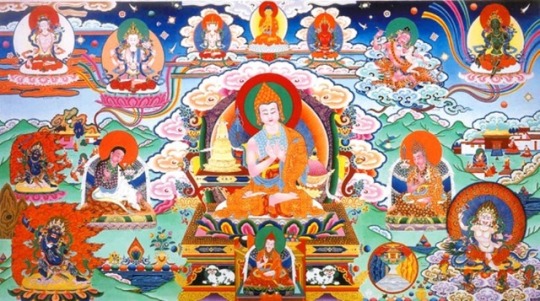
Discard all lingering doubts, and strive with dedication in your practice. Thoroughly relinquish sloth, mental dullness, and laziness, and strive always with joyful perseverance. -- Atiśa
#bodhi#bodhicitta#bodhisattva#buddha#buddhism#buddhist#compassion#dhamma#dharma#enlightenment#guru#khenpo#lama#mahasiddha#mahayana#mindfulness#monastery#monastics#monks#path#quotes#rinpoche#sayings#spiritual#teachings#tibet#tibetan#tulku#vajrayana#venerable
29 notes
·
View notes
Photo

Raising Children with the Good Heart
by Lama Zopa Rinpoche
Young people are the future of the world. How much happiness and peace, and likewise, how much fear and danger future generations will experience, depends on how children are educated right now.
A more peaceful world depends on children practising the good heart — helping others and not harming them. This is the most important education you can give children and the very first thing to teach them.
Initially, it is very important to make a plan for your children’s lives to be beneficial, both for their own sake and for the rest of the world. People who are starting a new business, for example, begin by developing a plan to make it the most profitable possible. Similarly, even before you bring children into the world, you should make a plan given that a sentient being’s life is much more important than a business!
Every day, you, as a Buddhist parent, make prayers, recite mantras and so forth, for the benefit of all sentient beings — the numberless hell beings, hungry ghosts, animals, human beings, asuras, suras and intermediate state beings. Since your children are also included in those sentient beings, you must think about how to make their lives the most beneficial possible. This is because, among the numberless sentient beings, you have a special responsibility for your children’s lives. You must therefore make a plan to ensure that their lives are meaningful and not passed in suffering, at the very least for themselves but ideally, also for the entire family, society, country and world.
You have a huge responsibility for the kind of people your children will grow up to be. Because you spend so much time with them, your attitude and behaviour can have a lasting influence on them.
Of course, there is no guarantee they will do everything you tell them to do; they also have their own individual karma. Having created strong karma in their past lives, your children’s lives may well turn out to be completely different to the way you brought them up. But because what happens to them also depends on other causes and conditions, you are responsible for helping them as much as you possibly can. Therefore, you need to have a clear plan as to how to educate them. If instead, you miss out on directing your children’s lives in a positive way, their futures will be very unsure and the opportunity you had to help them will be lost. Although many good things could have happened to your children because you lacked a clear idea about parenting, their lives might become filled with constant suffering and problems.
A good parenting plan comes from having a healthy, positive motivation for bringing up your children, one that is based on a good heart rather than on attachment.
If you have a good heart and a good attitude toward life, and consequently try to do positive things to help others in your daily life, it will have a strong impact on your children. It will be of great benefit to them and they will grow up with a healthy mind — a positive, pure Dharma mind. With this type of mind, they won’t harm themselves, nor will they harm other sentient beings: their families, neighbours, fellow countrymen and the people of the world, not to mention animals. Not only that, their healthy minds will also make it possible for them to bring peace and happiness to others.
Children learn from their parents, so if they see you trying to benefit others, they will receive a positive message from your example. Then, when your children have their own children, they will pass on that same education by also living their lives with a good heart and helping others. Your children will be an example for their own children, that is, for your grandchildren. Like this, parents can help to transmit from generation to generation the importance of a good heart, of not causing harm to others and of doing as many positive actions as possible. If you do this, the result will not only be an enjoyable family life for you and your children, but it will also bring much happiness and peace to the sentient beings of this world, life after life. Therefore, your role as a parent is extremely important and entails a truly big responsibility.
#bodhi#bodhicitta#bodhisattva#buddha#buddhism#buddhist#compassion#dhamma#dharma#enlightenment#guru#khenpo#lama#mahasiddha#mahayana#mindfulness#monastery#monastics#monks#path#quotes#rinpoche#sayings#spiritual#teachings#tibet#tibetan#tulku#vajrayana#venerable
23 notes
·
View notes
Photo
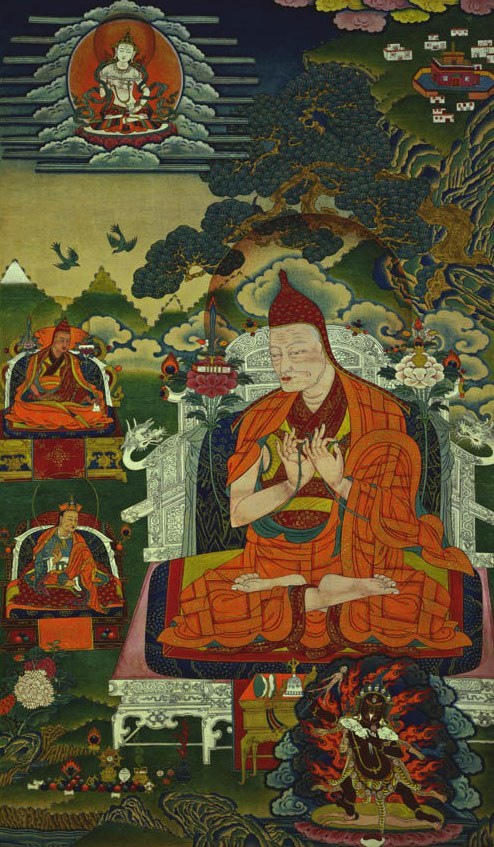
The root of the entire dharma is mental rejection of the concerns of this life. -- Jamgon Kongtrul Lodro Thaye
#bodhi#bodhicitta#bodhisattva#buddha#buddhism#buddhist#compassion#dhamma#dharma#enlightenment#guru#khenpo#lama#mahasiddha#mahayana#mindfulness#monastery#monastics#monks#path#quotes#rinpoche#sayings#spiritual#teachings#tibet#tibetan#tulku#vajrayana#venerable
16 notes
·
View notes
Text

人为什么活的累?
净慧长老
一、信仰
人生不能没有信仰。人生没有信仰了,就好像一个人没有灵魂一样,做一切事情都没有定盘星,没有内在的符合善法的标准、符合自他利益的标准。一个人只有选择了正确健康的信仰,人生的道路和方向才能够真正定位。如果人生的方向不能定位,我们做人做事的目标就不会很清晰,就是盲目的。
信仰可以根据每个人不同的兴趣和需求自由选择。佛教说一个人选择何种信仰,与他过去的善根、慧根有直接关系。慧根深厚的人,他会选择一个非常究竟的信仰,非常正确健康的信仰,使我们不至于走到信仰的误区,不至于在信仰问题上、在人生的目标上产生偏差。
二、因果
世间的万事万物都是有因有果的。种什么因结什么果,就像春天播什么种子,秋天就有什么样的收获一样。所谓:如是因,如是果;种瓜得瓜,种豆得豆;善恶到头终有报,只争来早与来迟。人生做一切事情,一个最根本的出发点,就是要明白因果道理。我们有了正确、健康、究竟的信仰,我们做人做事就一定有非常具体的善恶标准。有了善恶的标准,我们在举心动念、所作所为当中,就会种善因得善果,尽量避免种恶因。能够不种恶因,就不会得恶果。
人生的际遇多种多样,有的人做事情一帆风顺,心想事成;有的人做事情,种种障碍,种种不顺心。人生的种种际遇,都不是偶然的,都是因果规律在起作用。
有时候,我们会把因果的作用看成是固定不变的。当然,种什么因得什么果,确实有一定的规律性。但是,只要我们有一个健康的信仰,在结果上尽管我们不可选择,但是在种因上我们有主动权。我们不能选择什么果报,但是可以选择种什么因。我们尽量不做损人利己、伤天害理的事,经过不断地积累,就能够改变人生的际遇。我们无法改变结果,但是我们可以创造一切善因善缘,使恶的结果推迟,使好的结果提前。这也不是不可能的,这也是我们人生的主动权。
佛教告诉我们,时间分为三世:过去、现在、未来,我们的生命就在时间中存在,所以我们的生命也分为过去、现在和未来。三世的生活状况和生存际遇如何,就构成了三世因果。三世可以在一念间,因为每一念都可以从时间上界定过去、现在和未来;同样,也可以把过去、现在和未来延展到生命很遥远很遥远的过去以及很遥远很遥远的未来。这就是佛教对生命的基本看法。
我们个人的生命绝对不是在几十年前偶然发生的现象。佛教认为生命前前无始、后后无终。既然生命是这样一种现象,那么我们每个人如何在生命的无尽长河中修养自己和提升自己,就是一个非常关键的问题。
三、良心
如何保证因果的规律在我们的生活当中得到落实?良心是保证。有良心的人,他一定会时时刻刻想到自己的利益和他人的利益是一致的,一定会时时刻刻想到损害他人的同时就是损害自己。
所谓良心是什么呢?良心是非常奥妙的。只要我们有一念恻隐之心、一念向善之心、一念慈悲之心,一念爱心,就说明是良心在发挥作用。良心在儒家的思想里说是“天理良心”,它和上天所规定的根本道理是一致的。
上有天理,下有良心。天理就是宇宙万物的自然法则,良心就是我们人的良知良能。人有良知良能,所以从古至今,善事的积累、好事的积累、功德的积累,总是占主要的位置,这就是良心的落实。如果良心偏离了,良知良能没有得到发挥,那就是人类的劣根性在起作用。所以在我们人类历史上,无论是过去还是现在,总有许多阴暗面,总有许多丑恶面,这是我们人类从古到今时时必须面对的事实。
怎样使人类光明的一面占上风,使丑恶阴暗的一面尽量缩小,这就要靠人类良知良能的养成、要靠良心的落实。从普通老百姓来讲,不知道什么是因果,也不知道什么是信仰,只知道这个人有没有良心。普通老百姓就是用有没有良心来衡量一个人的是非善恶。由此可见,养成和发扬人性善良的一面,抑制消除人性丑恶阴暗的一面,就是不断培养人类良知良能的过程。
四、道德
良心的落实,是在家庭、社会、个人的道德修养中来体现。道德不是空洞的概念,道德是一种伦理关系、社会关系。两个人以上,才有所谓的伦理,才有所谓道德。由此可见,人生在世,没有一时一刻是孤立的,每时每刻都在与不同的社会成员发生各种各样的关系,如何正确处理好这些关系,那就要用道德的观念来指导我们每时每刻的言行。
从一个国家来说,她用法律的力量来约束我们老百姓的言行,使每一个老百姓的言行能够服从国家利益、社会利益和人民利益。国家法律以什么为基础呢?以道德为基础。道德的内容体现在法制建设上,体现在法律条文上。法治的目的就是要落实人类的道德,法治完善了,德治就在其中。
作为一个社会团体,一个企业、一个工厂、一个寺院,都会根据国家的法律和该团体自身的要求,制定诸多具体的规章制度,那也是道德建设的组成部分。
具体讲到佛教的道德,就体现为佛教的清规和戒律。清规戒律缩到最小的范围,就是五戒。五戒的内容很具体:不杀生、不偷盗、不邪淫、不妄语、不饮酒。一个人对于自身和他人所做的种种好事坏事,无非是这五个方面的延伸。
尽管国家的法律很多,真正归结到几点上,不会超过佛教五戒所指的这些内容。所以佛教的五戒,是社会道德的根本原则,也是我们人生修养身心,落实信仰、因果和良心的基本准则。
我们在做人当中,能够按照“信仰、因果、良心、道德”这八个字要求自己,我们就会有一个幸福、圆满、尊贵的人生;反之,我们人生的种种缺陷、种种烦恼和痛苦,都是由于没有很好地落实这八个字而造成的。
#buddha#buddhism#buddhist#bodhi#bodhicitta#bodhisattva#compassion#dharma#dhamma#enlightenment#mahayana#mindfulness#monastics#monastery#monks#path#quotes#sayings#spiritual#teachings#venerable#wisdom
6 notes
·
View notes
Photo

What we call “essence of mind” is the actual face of unconditioned pure awareness, which is recognised through receiving the guru's blessings and instructions. If you wonder what this is like, it is empty in essence, beyond conceptual reference; it is cognisant by nature, spontaneously present; and it is all-pervasive and unobstructed in its compassionate energy. This is the rigpa in which the three kayas are inseparable. -- Mipham Rinpoche
#bodhi#bodhicitta#bodhisattva#buddha#buddhism#buddhist#compassion#dhamma#dharma#enlightenment#guru#khenpo#lama#mahasiddha#mahayana#mindfulness#monastery#monastics#monks#path#quotes#rinpoche#sayings#spiritual#teachings#tibet#tibetan#tulku#vajrayana#venerable
24 notes
·
View notes
Text

Rich Generosity
by Venerable Sheng Yen
When a candle is lit in a dark room, it illuminates the room to some extent, but its power is limited. But if you use the same candle to light another candle, the total brightness increases. If you continue to do this, you can fill the room with brilliant illumination. The idea of transferring merit to others is like this. If we keep our own light selfishly hidden, it will only provide a limited amount of illumination. But when we share our light with others, we do not diminish our own light. Rather, we increase the amount of light available to all. Therefore, when others light our candle, we issue forth light. When out of gratitude we use our candle to light other people’s candles, the whole room gets brighter. This is why we transfer merit to others. This kind of light is continuous and inexhaustible.
When we achieve a mind of gratitude and dedicate ourselves to helping others, we can practice generosity. We can be generous with our wealth, with ourselves, and with the Dharma. In some ways, giving wealth is the easiest. If we consume less and live more frugally, we can give away what we save.
It is also useful to remember that the nature of giving is not necessarily dependent on the size or the value of the gift. Once, the Buddha was about to teach the Dharma to a congregation in the forest, but it got dark. Several people offered their lamps, but there was a homeless woman whose only possession was an alms bowl, which she offered to serve as an oil lamp. On realising this, the Buddha exclaimed to his congregation that the old lady’s virtue was the most excellent, as she had offered her total wealth, the begging bowl. By making her offering, do you think she lost anything?
So when out of gratitude we dedicate ourselves to benefit others, this is practising generosity or giving. This is something we can learn. Some people think by giving everything away, you end up with nothing. But the Dharma is an inexhaustible well. However much you give of it, you can always go back for more, because in this well the more you take from it, the higher the water will rise. As long as you give the Dharma to nourish others, it will be there. As long as you are alive and are able to practice, this will be true. Being alive, you can learn more and more, and give more and more. Being alive, you can also take time to rest and recover, then go back to the source. This is how giving the Dharma works.
#buddha#buddhism#buddhist#bodhi#bodhicitta#bodhisattva#compassion#dharma#dhamma#enlightenment#mahayana#mindfulness#monastics#monastery#monks#path#quotes#sayings#spiritual#teachings#venerable#wisdom
122 notes
·
View notes
Photo
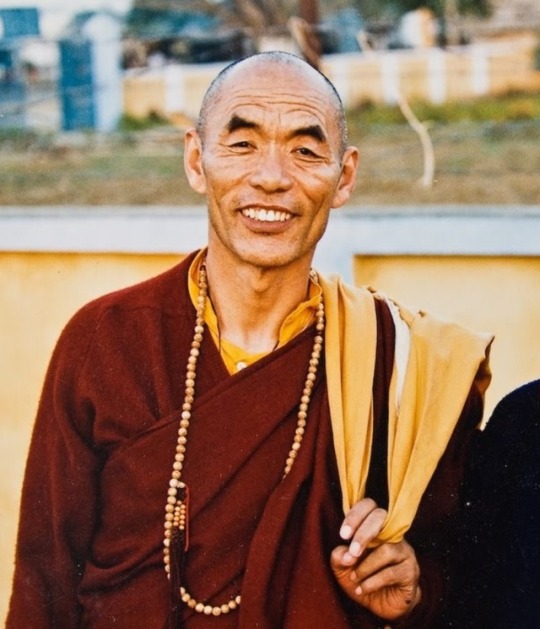
To lack mindfulness is to sleep in an ocean of urine. To lack mindfulness is to be like a heartless corpse. Friends, please be mindful! Through the aspiration of the supreme guru, may all friends attain firm mindfulness! -- Nyoshul Khen Rinpoche
#bodhi#bodhicitta#bodhisattva#buddha#buddhism#buddhist#compassion#dhamma#dharma#enlightenment#guru#khenpo#lama#mahasiddha#mahayana#mindfulness#monastery#monastics#monks#path#quotes#rinpoche#sayings#spiritual#teachings#tibet#tibetan#tulku#vajrayana#venerable
15 notes
·
View notes
Text
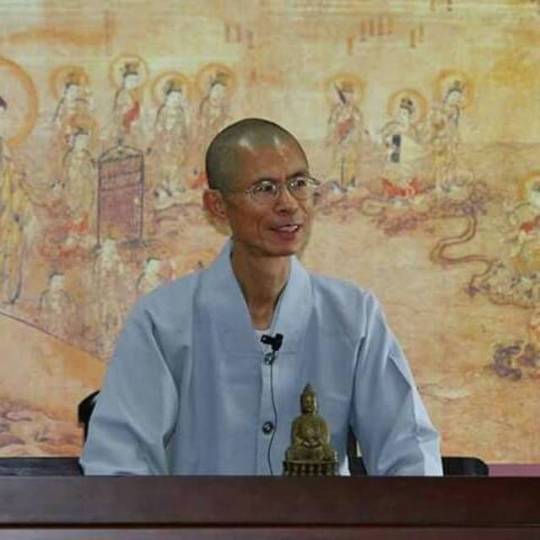
人生目的
慧净法师
1.人生如果没有目的,那么生存也就毫无意义。
此生很短,而后生无穷的长,假藉短短几十年的时间,寻求永恒不生不灭的生命,正是“人生之目的”。
然而,欲寻求永恒不生不灭的生命就要学佛,而学佛的目的则在于今生离开轮回,成佛度生。
2.世间上最重大的事情就是生死轮回,学佛修行的目的,就是为了解决生死轮回这一件大事,除了这一件大事以外,没有其他的大事了。
3.人到底为什么而生?又为了什么而活下去?非活下去的理由是什么?生存的目的又是什么?你这样每天过着同样吃、睡、工作的生活可以吗?你的人生如果就这样结束,你会满意吗?这些事你曾否考虑过?生而为人,若对这些不加以深切思惟,就太枉费生而为人的价值了!
4.人生是什么?死后会如何?人生之目的何在?自称“万物之灵”的人类,对此三问,曾否认真思考过?若终其一生,都没想过这三个问题,那么,严格的说,虽生而为人,却不配称为万物之灵。因为,人生在世,谁能免死?偏营眼前之事,不虑后世,便是愚者。而虽认真思考,若福德不够,未遇真善知识,亦难得正确答案。
5.这个宇宙人生是无常、苦、空、无我,虚假不实的,而且人心都有贪瞋痴慢的烦恼,这烦恼是一切罪恶的源头,会驱使身体的言语行为去造作杀盗淫妄的罪业,而导致三界六道无穷无尽的生死轮回,遭受胎卵湿化无量无边的身心痛苦。对宇宙人生的实相有此观念之后,就要努力寻求解脱生死轮回的法门,以获得真实不虚、永恒不灭、纯善无恶、纯乐无苦的生命。
6.一个人如果确实知道有善恶报应、有六道轮回,有地狱的刑罚,有无间罪那种不能诉说、无法形容的痛苦,他一定打自内心深深警惕,同时也会尽量去恶行善,而且会尽其一生去寻师访道,寻求今生必定解脱之道,不等来生。
7.一个人即使享受一生荣华富贵,可是却不晓得人生究竟最高的目标是什么,那么他会快乐吗?他不会快乐的。唯有领悟了人生的目标是什么?真正绝对的目标在何处?而且也掌握了达到目标的方法,这个时候,才有心情开始享受他的荣华富贵;即使没有荣华富贵,而只是贫困的睡在桥底下,也会感到满足的,因为他找到人生的真正目标,也掌握了通往目标的方法,所以“目标与方法”对人生来讲是非常重要的。
8.不知死后是有是无的人生,再如何长寿、富有、快乐,心底仍然免不了潜存着莫名的不安与苦恼。人的内心之底若有着莫名的不安苦恼与孤独寂寞,则肉体虽有同伴,心灵没有同伴;现在虽有同伴,未来没有同伴。因此人生没有真同伴真亲友,人生是“独生独死,独去独来”,始终都是孤独而寂寞的,是故古人说:“偏营眼前之事,不虑后世者,愚也。”
9.人生的大事是“后生一大事”,“后生”即是死后的世界。五戒成人,十善生天。人生在世,戒、善俱缺;因此,后生必堕地狱,人生的目的在于解决这“必堕地狱”的后生一大事。
10.佛陀曾在《涅槃经》形容人身难得说:“得人身如掌中土,失人身如大地土”,可见机会是这么微小。在百年之内,这个地球上六十亿的人,终将全部死亡,死去以后一定还会再投胎转世,但是往往堕落三恶道的比较多。所以不管是古今中外,万人共同的人生目的,就是要解脱生死轮回,解决迫在眼前的这个将要堕落三恶道的这件大事。
11.佛教的价值观不是以外在的五欲作标准,是以内在知不知道生死一大事、知不知道弥陀的救度这件事作标准来衡量的。
12.没有脱离六道就一定会堕落。人生在世,什么都可以商量,只有生死大事是不能商量的。明朝末年有一位高僧紫柏大师曾说:“除却生死真大事,其余皆是可商量。”也就是说,我们学佛,就一定要以生死大事的解脱摆在第一位,其他的可以慢慢来。如果其他的事对解脱有妨碍,那些事情都要当下舍掉,如果顺于解脱生死,就可以去学习。
13.世间人往往认为,这个人学问大,是哪里毕业的,有什么文凭,或这个人功成名就,就觉得他已不虚此生了,这完全是以外在的学问、权位、金钱来衡量一个人的人生价值。但从佛法的观点来看就不一样了,佛法所看的与世间所看的,不仅是绝大的不同,而且是根本性的不同。世间人所以为的“常”“乐”“我”“净”,由佛法看却是“无常”“无我”“无乐”“无净”,是截然不同的。
14.以佛法的标准来说,一个人如果晓得生死这一件大事,同时晓得有往生极乐这一条易行道能让我们轻装上路──愿生极乐、专称弥陀名号,这才是有智慧的人;反过来说,如果不晓得生死大事,不晓得求生净土,以解决生死轮回、追求永恒真实生命,则不管他再怎么有学问、有世间的地位、钱财,以佛陀的眼光来看,都是愚痴、可怜悯的人。
15.如果生而为人却不晓得有这么一件生死大事要解决,那么他跟一只狗、一只猫几乎是没有两样的──同样的生,同样的死,又同样的轮回。反之,如果生而为人,能遇到佛法,晓得有善恶报应、三世因果、六道轮回,晓得要离开轮回而亲证涅槃境界的话,那就没有白来一趟了。
但是,如果没有行走在净土的道路上,往生极乐世界的话,也只是结个佛缘,还必须要等待未来世,因为要在短短的一生中以自己的力量来断除烦恼,来偿还自己生生世世以来的债务,来脱离三界六道轮回,那是太不可能了;可是如果依靠阿弥陀佛,不但能够安然离开六道轮回,而且能往生成佛。这样讲起来,往生成佛岂不就是所有人的最高目的吗?
16.要怎样才能安稳得到永远不老、不病、不死、无有忧悲苦恼的喜乐生命呢?这件事唯有念佛法门才能成办。为什么?因为念佛决定往生极乐世界,一旦往生极乐世界,就离开了三界六道生死轮回,就没有老、病、死,而且无忧悲苦恼。《阿弥陀经》开示说,往生极乐世界的人“无有众苦,但受诸乐”,意思是无有一切身心忧苦,唯有无量的清净喜乐。
以我们目前的身、心来说,身是痛苦的器具,受到饥、渴、寒、热、老迈、病痛的苦;心则有是非得失、贪瞋痴的痛苦,这是我们娑婆世界的现象。极乐世界虽也有心有身,但是不老、不病、不死、无忧愁、无痛苦,生命永远存在,而且又有神通愿力能够救度众生,这岂不就是我们人生所要追求的最高目标吗?
17.有关人生的目标跟达到目标的方法,对我们而言无比的重要。我们生而为人,人生最主要的目标在哪里?达到目标的方法又是什么?如果有一架民航机,乘载很多旅客,飞上了天空,机上空服人员非常的体贴、亲切,里面有非常多好吃的食物、好玩的东西,可以说一旦乘上了这架飞机是非常快乐、幸福的。
可是当大家知道,这一架在一望无际的天空中翱翔的飞机,却没有着陆点,汽油也逐渐快用完了,请问大家,你觉得这架民航机里的乘客,能因为有体贴的空服人员,有种种好吃好玩的,而感觉到快乐、幸福满足吗?一定不会,这就显示出目标的重要性了。
18.我们生下孩子,是要让他解脱?还是要让他造罪、造业,继续轮回、受苦受难?这点很重要。人一定要求解脱、求往生,我们最亲爱的就是自己的先生、太太、儿女,我们都想解脱了,如果没有将这个观念来让他们也了解的话,那表示我们对他们的爱心不是真正的爱心。真正爱他们就必须要给他们最好的,就是这个净土法门──念佛往生的解脱之道。
19.结婚是大事,养育儿女是大事,开创成功的事业、得到崇高的名位,也是大事;但是想���看,跟我们将堕落到三恶道的这个大事比起来,这些都微不足道了。所以如果不晓得有这一件大事,可说是不晓得人生真正的目的;晓得人生真正目的的人,就知道摆在他眼前非尽快解决不可的,就是解脱生死轮回的大事。要解脱生死轮回,必须学佛修行才能达成。
20.人生的目的是什么?可能绝大多数的人都没有确实的反问自己:“我为什么生下来?我为什么活着?”人生很苦,像最近台湾景气不好,有人因为生活痛苦而自杀;有的人则是再苦也忍耐活下去。但是,“忍耐活下去是为了什么?人生何去何从?”如果能够往这方面去思考,人就会产生智慧,同时也会走进信仰领域,此后只要他找到答案,那么他的余生,就能过着安心、安稳、安乐的日子。
21.从学佛的目的来讲,为什么我们要学佛呢?甚至从人生的目的来说,生而为人的的目的是什么呢?其实只有一个──而且这个是古今中外都相同的,就是解脱自己与他人的生死轮回,亲证本来的自我,也就是“佛性”。因为一切众生都有佛性,都能成佛。所以,换言之,回复我们原本的佛性就是人生的目的,也是学佛的目的。
22.三界六道的轮回,在本质上是纯粹的苦、彻底的苦,所以三界中的众生,应把身在轮回中,当成是唯一的、最严重的大事来看待。六道之中,唯有人道才有解决这件大事的机缘,既已生而为人,如果不知尽快解决这件生死大事,终将空手而回,失去生而为人的意义和价值。反之,既得人身,又遇到解脱的方法,达到解脱的目的,这样自然也成就了今生为人的价值和意义。
23.人生有三世—— 过去、现在、未来,但今生很短,未来世无穷。无穷的未来,极难再度当人,大多堕入三恶道。三恶道时长苦重。度脱来生之苦,决定在今生,因此有生之年,必须完成救度来生,这件事是每一个人“人生的大事”,解决这大事是每一个人“人生之目的”。
24.我们学佛修行是为了了脱生死轮回,不是为了学佛而学佛,不是为了深入经藏而深入经藏,不是为了修行而修行,也不是为了出家而出家,学佛的目的就是了脱生死轮回。
25.透过〈源信上人念佛法语〉能够让我们感受到生而为人的可贵、可庆喜。源信上人说:“生于人间,应大庆喜。”不止庆喜,而且是大庆喜。如果庆喜不起来,就表示我们不了解生而为人的可贵性、难得性。
26.一个有智慧的人来学佛,他第一点优先考虑的是有哪一个法门能够让他现在就解决生死轮回这一件大事,使他生命中最大的担忧、恐惧能够安心下来。有智慧的人来学佛,他首先应该去找这一个法门,而这一个法门,在八万四千无量法门当中,就只有我们这一个念佛法门,所以《无量寿经》说:“一切恐惧,为作大安。”
27.人生在世,有种种的烦恼、恐惧,但是这一些烦恼、恐惧都有一个根,它们是从这个根产生出来的;这个根若没有了,所有的烦恼、恐惧都会消失;如果这个根存在,即使其他的烦恼、恐惧都消除了,依然还会冒出新的烦恼、恐惧出来。
这个根是什么?就是生死轮回。生死轮回是人生最大的恐惧,是一切恐惧的根源;然而,阿弥陀佛说,你的生死轮回,我来负责,我让你的心能绝对的大安心、大满足。所以,所有的利益都是附带的,唯有能够往生极乐世界,这个利益才是究竟的,而且是独一无二的。
28.佛法是拔苦与乐之法,能让一切众生此生即彻底拔苦与乐的,正是弥陀救度法门。你既然已蒙救度,活在弥陀怀抱中,世间黑暗苦狱转为安乐光景,则何苦之有?应为自己今生能知道人生的大事,达成人生的目的而喜,不可随同世人醉生梦死,以短暂的苦境为忧。
29.不管是谁,学佛始终都要“一向专信阿弥陀佛”、“一向专念阿弥陀佛”。唯有阿弥陀佛,才能使每一个人生前获得大安心、大满足,死后决定生净土、成佛果。我说这种话,难免会给人武断、蛮横之感。其实念佛法门,若就其平常而言,没有其他法门比这更平常了;若就其高深而言,没有其他法门比这更高深了。因为这是万法的结晶,也是佛法的结论,是释尊出世的本怀,也是吾人学佛的目的。
30.人生的目的简单的讲就是为了“愿生弥陀净土”,这也是学佛的目的;总而言之,人生从何来?死往何去?人生何去何从?这问题的答案很简单,就是往生极乐世界。
31.释迦牟尼佛在《阿弥陀经》劝我们娑婆众生,无论如何都要愿生极乐世界。一而再,再而三,即是表示无量次,时时的劝我们,时时希望我们往生极乐世界。所以愿生极乐世界,即是释迦牟尼佛出世的本愿,也是阿弥陀佛的本愿,也是我们人生的目的、最高的愿望。
32.往生极乐不只是永远脱离了六道轮回,且能拥有与阿弥陀佛相同的无量寿命、无量光明,具足四十八大愿的功德。所以,往生极乐是人生目的,也是佛教八万四千法门中最崇高的目标;可说是佛法的结晶、所有行法的归宗结顶。而往生的方法又很简易,只要称念“南无阿弥陀佛”就可以了。
目标是那么崇高,果报境界是那么殊胜,方法却是这样的平淡、平凡,毫不奇特艰难,甚至多被世人轻视,为什么会这样呢?这是因为他们不明白,净土念佛一门之背后有阿弥陀佛的愿与行。从结论上来讲,我们人生的目标、学佛的目的,都很明朗确定,就像旗子鲜明挂在高空中,四面八方的人抬起头就看得到:这就是目标──“往生极乐世界”,方法──“专称弥陀名号”。
33.不怕不成佛,不怕不会度众生;就怕不能往生极乐,一旦往生极乐,一定成佛,一定会广度众生。所以我们人生的目的就是往生极乐,我们学佛的目的就是往生极乐。有的人把佛法当做一种哲学、学问来研究,没有将佛法与生死大事结合,也就是没有想要脱离轮回,可是我们有非常明确、坚确不移的这个目的:人生的目的、学佛的目的、修行的目的,就是往生极乐!
34.古德云:“世间大事唯生死,不念弥陀更念谁。”人生的目的,是信心念佛,经云:“唯此一事实,无二亦无三。”
35.学佛的人,不管是依圣道门修行,或是从净土门而入,最终都是要降伏,进而断除无明。不过,若回顾我们昔日的学佛过程,就会了解,愈是深入佛法,会愈发觉自己原来是一个彻底的博地凡夫。我们都是凡夫,虽然我已经出家了,我也还是凡夫,在座的各位当然也还是凡夫;凡夫的内涵是什么呢?就是贪瞋痴具足、妄想杂念不断。有妄想杂念,有贪瞋痴,所以贪着五欲的尘劳,只要是凡夫都有这种心念,只要还有这种心念,他就是凡夫。
那什么是博地凡夫呢?就是自觉自己的贪瞋痴烦恼比别人更加炽盛,妄想杂念比别人更多更杂。自己虽然学佛,但一直无法以自己的力量来修持佛法所讲的戒定慧,无力降伏贪瞋痴。但是六道轮回却又明明摆在眼前,这样要如何呢?所以要求生极乐世界,唯有往生极乐世界,才能使我们这般博地凡夫,此生学佛,今生即成就佛道,脱离生死轮回。
36.关于后生这件大事的彻底解决,唯在于“信受弥陀救度,专称弥陀佛名,愿生弥陀净土”。故“念佛往生”,即是人生生存的唯一目的!
#buddha#buddhism#buddhist#bodhi#bodhicitta#bodhisattva#compassion#dharma#dhamma#enlightenment#mahayana#mindfulness#monastics#monastery#monks#path#quotes#sayings#spiritual#teachings#venerable#wisdom
3 notes
·
View notes
Photo
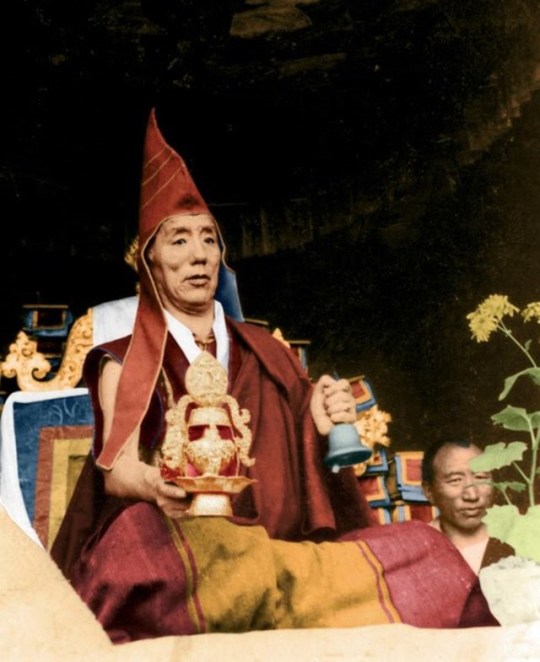
Dharma practice is to cut attachment to samsara, to generate love and compassion for all beings of the six realms, to tame this mind of ours again and again. This, I plead, take to heart and practice all the time - please do! -- Jamyang Khyentse Chokyi Lodro
#bodhi#bodhicitta#bodhisattva#buddha#buddhism#buddhist#compassion#dhamma#dharma#enlightenment#guru#khenpo#lama#mahasiddha#mahayana#mindfulness#monastery#monastics#monks#path#quotes#rinpoche#sayings#spiritual#teachings#tibet#tibetan#tulku#vajrayana#venerable
7 notes
·
View notes